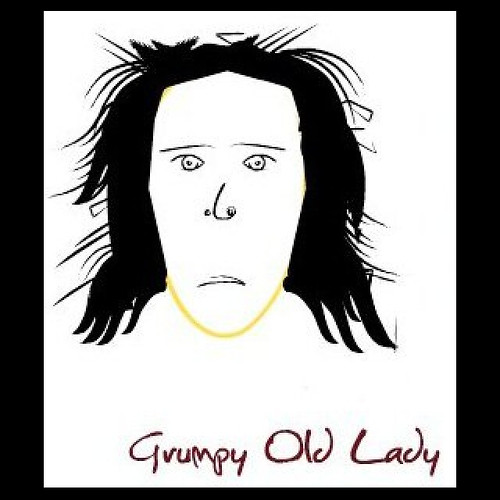Saturday, 30 November 2013
Barley the Lurcher
Wednesday, 27 November 2013
Female Genital Mutilation, FGM
Female Genital Mutilation.
I wasn't really sure how I wanted to start this blog post.
I knew what I wanted to say, but I find the subject so heartbreakingly sad it is difficult to choose the appropriate words, but I still wanted to say something...........
So I'll just ramble on - as I usually do, and hope it makes sense.
I'll start by saying, it is a crazy World.
Sometimes I don't understand the World. Well, I guess it's people, more than the World, I have trouble understanding.
I'm talking about understanding female genital mutilation, or FGM as it's more commonly referred to in the media. It's usually written as FGM, not only because it's shorter but probably because we don't like to talk about genitals in Britain. Well, not in any serious way, although we are quite happy to make jokes about them. Not that there's anything funny about FGM.
Anyway, once again female genital mutilation is currently a popular subject, it's all over the Internet, and in various publications, and on the TV news.
Female genital mutilation is described as any procedure that intentionally alters the genitals of a girl, or woman, by the removal of the clitoris, labia, or both, for non-medical reasons.
Practitioners of female genital mutilation claim there are health benefits of the procedure, and in many cultures it is considered to improve the marriage prospects of the girls and women.
However, there are no health benefits in the removal of any part of female genitals. Obviously.
It is difficult to imagine such a barbaric practice being carried out nowadays, 2013.
But if the numbers reported of the girls and women who have been mutilated are accurate, then it's definitely not an insignificant problem. Having said that, just one single case of FGM is one too many.
According to what I've read, approximately 140 million girls and women are living with the consequences of female genital mutilation. And 30 million are thought to be at risk of FGM.
Unsurprisingly, the complications of female genital mutilation are numerous, including heavy bleeding, problems urinating, infections, cysts, infertility, complications during childbirth, and the increased risk of deaths in newborn babies.
Female genital mutilation is reported to be most commonly carried out in the East, West, and North-Eastern regions of Arica, as well as some countries in Asia, and the Middle East.
For many years FGM has been associated with Mali, Somalia, and Sudan.
Female genital mutilation may not be something that's thought to be happening in Britan, but that's not the case. An estimated 66,000 women are reported to have undergone the procedure. And 24,000 girls are considered to be at risk of FGM.
I read that Scotland in particular has a large number of girls and women who have been forced to undergo FGM. The government claim they are trying to stop this.
In 1985 UK legislation to criminalise female genital mutilation was introduced, but there has never been a single prosecution.
These figures are shocking, and sad.
It is difficult to understand how one human can deliberately hurt another in such a barbaric traumatic way.
I can't begin to know how the girls and women who have been mutilated must feel, not just physically, but emotionally. My heart hurts for them.
That's why I started this blog post by saying I don't understand the World, or rather I don't understand people, some people.
There are millions of girls and women who have been subjected to the barbaric practice of female genital mutilation.
I've read enough articles on FGM, and watched interviews of girls and women who have been abused, because that's what FGM is - abuse, to know that for many of them it has ruined their lives.
If they could turn back time, they would never undergo female genital mutilation. Of course they wouldn't. Why would they? Surely no girl or woman would want to subject themselves to such horror.
Or would they?
Sadly they would, there are lots of woman, I don't know the exact number, but lots of women who have voluntarily mutilated their genitals, not personally, but with the help of a plastic surgeon.
These women are not victims, well, not in the same way that the girls and women of forced FGM are victims, these women made a conscious decision to go under the knife.
At least it's a conscious decision as far as being brain-washed by the media to look a certain way to be considered 'normal'.
Why would any woman not only make the decision to mutilate her own genitals, but to also pay a lot of money for the pain?
One reason. They want a playboy pussy.
How sad.
I have seen footage of women talking to their plastic surgeons, telling the surgeon that they want a neat playboy pussy. Their words, not mine.
It's a shame they didn't see the video footage about the majority of the playboy 'models'. The footage of them talking about the rise in popularity of so called 'cosmetic surgeries' aka playboy pussy operations. If they had seen the video they'd have heard the models saying it's all crazy, that their vaginas don't even look like what these women ask their plastic surgeons for.
The playboy models said they are 'normal' women, their genitals are all different shapes and sizes, and not some media created ideal of what is considered 'normal'. Yep, they said it was all photoshop.
I only digressed to 'playboy pussies' not because I wanted to lighten the mood, which playboy pussy certainly does not, because that's also a sad sad phenomena, but because it ends this blog post nicely, or as nice as a post about the barbaric practice of female genital mutilation, FGM, can be ended.
I find it funny, yes I said funny, as inappropriate as that word may be in a blog post about FGM, that there are millions of girls and women who are suffering the traumatic results of female genital mutilation, and there are also women who have willingly had their genitals mutilated.
As I said at the beginning of this post, it is a crazy World. Or more accurately, we, humans, are crazy. Humans are funny creatures that's for sure. Not funny haha, but funny peculiar.
I wish for a World where female genital mutilation does not exist. A World where one human does not deliberately hurt another human.
What are your thoughts on female genital mutilation, FGM?
If you're living in Britain, were you aware that it was happening here?
Monday, 25 November 2013
Beef and Bean Stew
Thursday, 21 November 2013
Missing France, Especially the Red Wine
What Is Happiness?
Tuesday, 19 November 2013
DIY Haircut, Face Framing Layers
It's not the first time I've ever cut my own hair, and I doubt it will be the last.
I know most hairdressers don't like us cutting our own hair, not because it loses them money, but because it may result in them having to repair our bad scissor skills, but I seriously dislike going to the hairdressers.
So that's why I sometimes cut my hair myself - or get Mr.R to do it for me.
But this time I decided to do it myself, and I liked the result.
Here's a step-by-step look at what I did.
The method looked so simple, and he explained the process really clearly.
Do you ever cut your own hair?
Does it usually turn out alright?
Have you tried the Sam Villa 'Twist method'?
Monday, 18 November 2013
Views that Lift Me Up
Sunday, 17 November 2013
Brits Love Loyalty Cards
One, time limits on offers. Two, restrictions on offers.
The most popular redemption offers were stated as; 42% of consumers said they liked accumulating the points to cash them in at a later date. While 31% said they used them for purchasing essentials. And 31% said they used their points for purchasing treats.
Other results of the survey showed that 20% of consumers preferred to cash in their points at the earliest opportunity. And 8% stated a preference for receiving instant discounts at the till.
According to this survey 32% of consumers said they would happily provide extra information about their shopping habits and profile, in return for extra points.
The government survey also concluded that loyalty schemes are currently so popular because British shoppers are thrifty. According to the survey, 66% of those questioned agreed, or strongly agreed with this statement, "I am more price-conscious than one year ago".
A third (36%) of consumers said they are using loyalty cards and coupons more than they they were a year ago. Almost half (48%) of the people surveyed agreed or strongly agreed with this statement, "I am more carful to remember my loyalty cards and coupons when I go shopping".
I wonder who first came up with the idea of loyalty cards, as we know them today? No doubt that person has made millions, or more likely billions of pounds for the companies who hand out loyalty cards like sweets; something nice for us to be pleased about, and to enjoy.
I am mainly referring to supermarkets in this blog post, because they are the biggest offenders of abusing their customers via loyalty cards. Although I know other businesses also have loyalty card schemes.
Having said that, I guess I should mention that not all of the supermarkets in Britain have loyalty card schemes. Asda doesn't, and neither do Aldi and Lidl. Thankfully those are the 3 places we do the bulk of our food shopping, so at least we don't get asked, "Do you have a loyalty card, and if not, would you like one?" every time we get to the till.
I remember fondly the 'old days' when you could go in to a shop and not be bombarded with in-your-face and aggressive offers. You were free to browse the goods for sale, check the price, and then if you so wished purchase your chosen product. Shopping was much more straight forward, and far less stressful than it is today.
Now days, it's often so difficult to even figure out how much an item is. And as for comparing the price of one brand with the same product of a different brand - forget it.
I don't like shopping. I don't want to spend any longer than necessary in a shop. I have much better things to do with my time than to stand querying prices and weights on every single item in the shop.
Big business does everything possible to make this almost impossible, or so frustrating that you just grab a product randomly and sling it in your basket or trolley.
The prices on the shelves are never standardised. Some will have price per gram, others per ml, and various other measurements. It's ridiculous.
They obviously do not want their customers to be easily able to work out what's the best buy for them, which actually does not always mean the cheapest.
I'm fed up of seeing supposedly generous offers of 'buy one, get one free', or 'buy three for the price of two' etc. I don't want 3. I just want one!
No wonder it's also been reported that the average British household throws away nearly 50% of it's grocery shopping. We're being forced to buy way more than we need, or want.
But what do the supermarkets care? They are coining it in, literally. They make millions just from the stuff we chuck in the bin. And then they make even more money from us because our fridges, freezers, cupboards are empty so we need to buy more. We've run out of everything because it either went off before we could eat it, because we'd bought too much, or we've throw it in the bin because we realised we didn't actually need 3 of whatever was on offer the day we shopped.
Unfortunately I doubt we'll ever see the dearh of loyalty cards because they are too valuable a tool for gathering information about us. And as we all know, it's the supermarkets who really run this country, not the government, and information is power. And power equals money.
Grrr! I realise I have slightly wandered off topic in this post about Brits love of loyalty cards, to my serious dislike of supermarkets, but I couldn't help it. It's a subject I often can't stop myself from having a rant about.
So, back to loyalty cards, basically as I think you'll have gathered - I'm not a fan. That's why when I read that three quarters of Brits love them, I was quite surprised. And slightly concerned.
Surprised, because I often hear people in shops moaning about loyalty cards, and I've never heard anyone saying they like them, or anything positive about them.
Concerned, because it says a lot about the education system in this country if people genuinely believe that loyalty cards are beneficial to them in any way.
One last thing before I get sidetracked again, as I was writing this post, something popped in to my head, the saying, 'Lies, damned lies, and statistics'. Which probably explains why the figures quoted in this government survey don't make sense and aren't exactly accurate, or maybe that's also down to the education system in Britain. ;)
What's your opinion?
Do you like loyalty cards? If so, I'd be interested to hear why you like them.











































